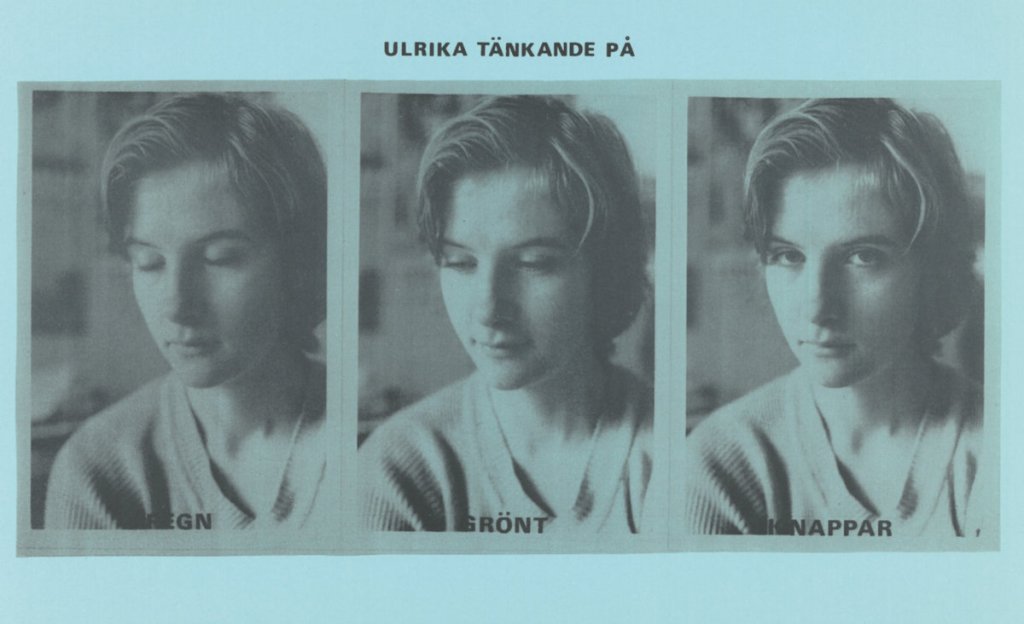
Sternpost is the solo venture of Malmö, Sweden, based Petter Herbertsson. Whereas his 2018 album ANTI-CLOCK was a continuous collage of musical snippets, found sounds and wordless narration, his new album Ulrika is a carefully composed and arranged clutch of contemplative, acoustically driven pop songs with jazzy underpinnings. Yet, while being almost diametrical opposites in terms of execution, the two albums share Petter’s signature chord progressions and the ability to aurally teleport you to unknown worlds. On ANTI-CLOCK that world may have been a post Tower-of-Babel chaos where language has broken down, whereas we on the new album are invited into the thoughts of Ulrika, a girl seemingly in her teens, captured on a photographic triptych by artist Mats B in a 1973 issue of Swedish underground culture publication Vargen, as she ponders trivial everyday things such as rain, the colour green and buttons.
The final commonality between these otherwise very different albums is that they are, simply put, utterly brilliant. Unfortunately, brilliance is no longer a good yardstick for gaging success. In 2023 when a Spotify “stream” is measured as 30 seconds of music and songs just contain filler for the rest of their duration, brilliant pop music has been driven underground. This implies not only the loss of good mainstream tunes, but sadly also the societal loss of the transformative power of music. Luckily, for those wanting more than a product to mark time for their workout or drown out the noise of their commute, the underground remains vibrant. Petter is a case in point. As a leader for avant-pop group Testbild! over the course of twenty years, he has made some of the most consistently beautiful and creative music to ever come out of Sweden. Eight albums of catchy experimentalism with consistently abysmal sales. An album made together with somewhat more well-known pop auteur Louis Philippe as Ocean Tango sold slightly better but two or three or even four times nearly nothing still equals nearly nothing.
Unsurprisingly then, Petter’s pop, although never rowdy to start with, has become more contemplative and less immediate. By letting us vicariously inhabit the thoughts of the (imaginary?) girl Ulrika with childhood memories stretching well into the 1950s, he carries us on crackly AM airwaves into a sepia toned late night waking dreamworld, not unlike what Paddy McAloon does on I Trawl The Megahertz. But whereas McAloon employs a narrator to convey his sentiments, here the narrative is carried by the delicately frail lyrics, juxtaposing words with equal measures of inspiration, invention and nostalgia. Beautifully sung by Petter himself with the eminent support of Siri af Burén; jointly they exert magical soft power.
And although this album is the sort of masterpiece that stands on its own without the need for a multitude of references, I nevertheless need to sneak in one to Sean O’Hagan, particularly on a track like “Detta alternativa segel”.
But picking highlights is needless, as Petter’s quality control is impeccable throughout and the music effortlessly carries the listener to final highlight “Ekfras” (a word derived from Greek for a work of art depicting another work of art) with the lyrics impressionistically telling the story of the inspiration for the album.
While ANTI-CLOCK remains my favourite album of recent years — maybe in close competition with Tom OC Wilson’s equally unique Tell A Friend — Ulrika is my top pick for album of the year.
